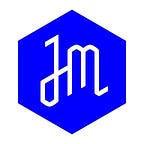No, I Don’t Eat Meat! A Recent Japanese Print Acquisition
The Jewish Museum recently acquired 10 prints by contemporary Japanese artist and printmaker Tetsuya Noda (b. 1940). Here, Norman Kleeblatt, Susan & Elihu Rose Chief Curator — who organized From the Margins: Lee Krasner | Norman Lewis, 1945–1952, which was named the 2014 Best Thematic Museum Show in New York, 1st Place, by the International Association of Art Critics — discusses how he came across the artist’s work and the development of his personal relationship with the artist.
I first caught a glimpse of Tetsuya Noda’s work in 2013 at the Asian Art Museum of San Francisco. Walking through the Japanese galleries, I spotted a unique print among other contemporary works. The image: a Japanese man wearing a yarmulke, sitting at a desk surrounded by rabbis. Not the expected subject matter explored by a Japanese artist! Although hardly an expert on Asian art, I had, by this time, seen my fair share. And this image was remarkable on many levels — the exquisite technique, unique colors, narrative richness, personal quirkiness, globalized perspective, and portrayal of modern Jewish life.
Flash forward a year: I was putting the finishing touches on From the Margins when I came across an old note in my handwriting: “Print with a man, perhaps Japanese, sitting … with rabbis, yarmulkes, writing.” Lucy Partman, my Curatorial Assistant, quickly contacted the Asian Art Museum to inquire about the print, which we learned is entitled Dairy: May 15th ’71 and was one of several in the collection by Tetsuya Noda, a leading printmaker in Japan. This work, I realized, would make a remarkable addition to the Jewish Museum’s collection. But after hunting for other available impressions, I found that I would have to speak with the artist directly.
Lucy contacted Tim Clark, Director of the Japanese Art Department at the British Museum, who curated a retrospective exhibition of Noda’s work in 2014. Clark put us in touch with Tetsuya and his wife Dorit, with whom Lucy and I communicated over email and skype. Enthusiastic conversations ensued, ranging widely from Tetsuya’s artistic process and techniques, to personal stories and discussions of Yiddish, the carp industry, gefilte fish, and Woody Allen!
While collecting scholarship on Tetsuya, one catalog was particularly difficult to find. And what luck that his daughter Rika and her fiancé Jason lived down the block from the Jewish Museum, and owned a copy! After delivering the publication, Rika offered further insight into her parents’ devotion to each other and their passion for printmaking. Of course, we also had to discuss Rika’s forthcoming wedding! At this point, Lucy and I were trying to acquire prints, thinking about how to exhibit them, and weighing in on wedding plans — the full-service curatorial enterprise!
Dairy: May 15th ’71 is from Tetsuya’s Diary series, an ever-expanding opus comprised of over 500 prints produced since the late 1960s, documenting daily life, travel, still lives, and portraits, and finding the extraordinary in the everyday. Dairy: May 15th ’71 depicts a rabbinic study session that took place as Tetsuya was preparing to convert to Judaism. Tetsuya explained,
After I decided to marry an Israeli, Dorit Bartur, I studied about Judaism with a Rabbi at the Jewish Community Center in Tokyo. Among other things I studied about dietary laws or kosher. Therefore I understood that all of the meat we can get in Japan is actually not considered as kosher.
In the print, Tetsuya included the text “No, I don’t eat meat,” a very fortunate response to the rabbis considering the circumstances!
This spring, the Jewish Museum’s board approved the acquisition of 10 prints by Tetsuya Noda related to his conversion to Judaism and family life. I am thrilled to share these works in the context of the collection, as the Museum continues to consider questions of identity, modern perspectives on Judaism and Jewish identity, as well as the globalization and hybridity of religion, culture, and practice.
— Norman Kleeblatt, Susan & Elihu Rose Chief Curator, with sincere thanks to Lucy Partman, Curatorial Assistant
